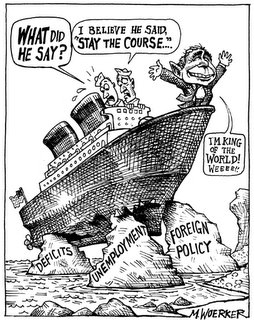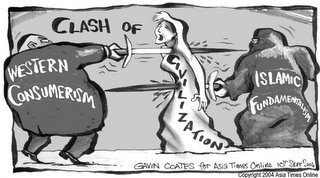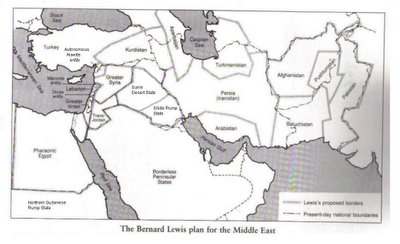
"The United States has approved a business deal that would turn over the operation of six major American ports to a company that is owned by the UAE" (Miami Herald)
"President Bush has announced he will veto any moves to stop the takeover, saying the Arab company is as safe as any other foreign entity to run a stevedoring operation" Australian Broadcasting Corp.
New York's Democratic senators, Charles Schumer and Hillary Clinton, too, have objected. Clinton and Sen. Robert Menendez, D-N.J., expect to offer a bill to ban companies owned or controlled by foreign governments from acquiring U.S. port operations.
"Congress must stop this sale of American ports to foreign interests and, in an era of terrorism, prevent any more potential terrorist targets from falling into the hands of those who wish to destroy us".
©2006 Washington Post Writers Group
LOS ANGELES TIMES
“It only provides . . . Congress an opportunity to talk tough and pander to the terrorism-rattled xenophobe in all of us”
THE NEW YORK TIMES
“The United Arab Emirates is an ally, but its record in the war on terror is mixed. It is not irrational for the United States to resist putting port operations, perhaps the most vulnerable part of the security infrastructure, under that country’s control”
"We're very concerned about the level of rhetoric and the way that there seems to be the assumption that because a company is Arab it can't be trusted with our security," said Katherine Abbadi, executive director of the American-Arab Anti-Discrimination Committee of New York.


